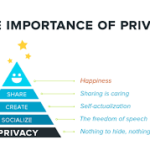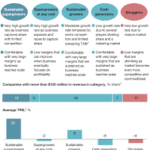Contents
Why Privacy Matters: Protecting Yourself and Your Personal Data
Discover why privacy is important in today’s digital age, and learn how to protect your personal information from prying eyes. 디비판매사이트 Find out what you can do to safeguard your privacy and keep your data secure online.
Introduction:
In today’s digital age, privacy is more important than ever. With the widespread use of smartphones, social media, and other online platforms, it’s easy for your personal information to fall into the wrong hands. From cybercriminals to government agencies, there are many people who are interested in collecting your data for their own purposes. But why is privacy so important, and what can you do to protect yourself? In this article, we’ll explore the reasons why privacy matters, and offer some tips on how you can safeguard your personal information.
Why Privacy is Important:
- Protecting Your Identity: Your personal information can be used to steal your identity, which can have serious consequences for your finances, credit rating, and reputation.
- Preventing Cybercrime: Cybercriminals are always looking for new ways to steal your data, whether it’s your credit card information or your social security number. By protecting your privacy, you can reduce the risk of falling victim to these types of crimes.
- Maintaining Your Dignity: Privacy is also important for maintaining your dignity and autonomy. When your personal information is shared without your consent, it can feel like a violation of your rights.
- Safeguarding Your Relationships: Sharing personal information online can also put your relationships at risk, as sensitive information can be used to manipulate or blackmail you or your loved ones.
How to Protect Your Privacy:
- Use Strong Passwords: One of the easiest ways to protect your privacy is to use strong passwords that are difficult to guess. Avoid using common words or phrases, and use a mix of upper and lowercase letters, numbers, and symbols.
- Enable Two-Factor Authentication: Two-factor authentication adds an extra layer of security to your online accounts, by requiring a second form of verification, such as a code sent to your phone.
- Limit Social Media Sharing: Be careful about what you share on social media, as this information can be used to target you with advertising or even steal your identity. Avoid sharing sensitive information, such as your home address, phone number, or social security number.
- Install Security Software: Install security software on your computer and mobile devices, to protect against malware, viruses, and other threats. Keep your software up-to-date, and avoid downloading apps or programs from untrusted sources.
- Use Privacy Tools: There are many tools available that can help you protect your privacy online, such as VPNs, ad blockers, and privacy-focused browsers. Do some research to find the best options for your needs.
FAQs:
Q: Is it possible to be completely anonymous online? A: While it’s difficult to be completely anonymous online, it is possible to take steps to protect your privacy and reduce your digital footprint.
Q: What should I do if I think my identity has been stolen? A: If you suspect that your identity has been stolen, you should contact your bank or credit card company immediately, and file a report with the police. You can also report the theft to the Federal Trade Commission.
Q: Why do companies collect so much data about their users? A: Companies collect data about their users to improve their products and services, as well as to target advertising more effectively. However, this data can also be sold to third parties, which can be a privacy concern.
Conclusion:
In conclusion, privacy is an important issue that affects us all. By taking steps to protect our personal information online, we can reduce the risk of identity theft, cybercrime, and other





